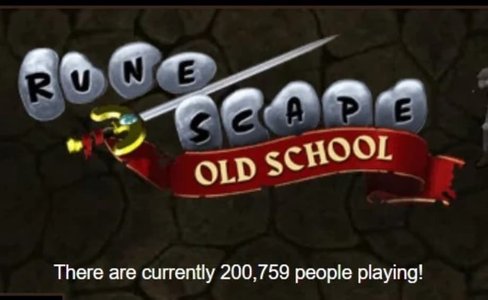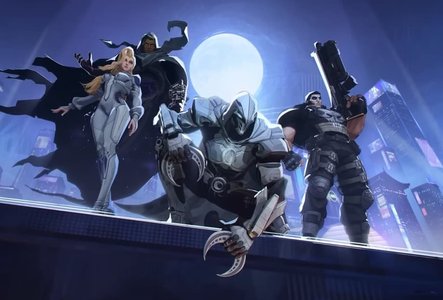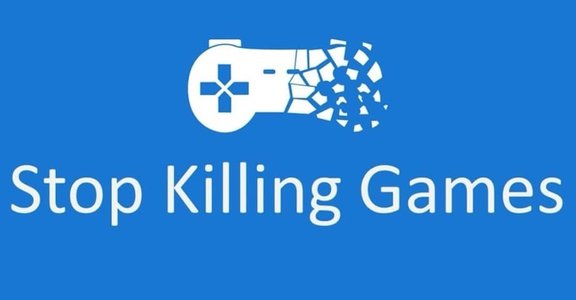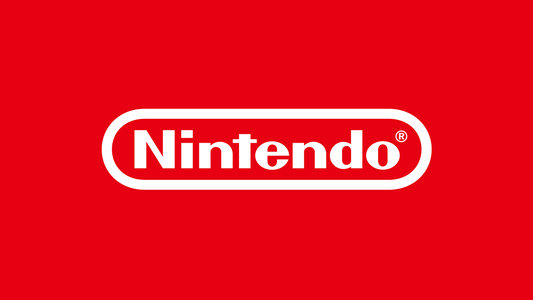["The industry across all segments appears to be treading water in terms of retail," says Gamasutra analyst Matt Matthews, who examines recent U.S. retail sales data in his latest Behind the Numbers column.] In the last column, I looked over the current U.S. hardware sales situation and laid out where the market has gone so far in 2012. The picture is not pleasant for anyone, but there are still opportunities for a turnaround later this year. Today I want to turn to U.S. retail software and accessories sales, and the larger content market where -- unfortunately -- more bad news can be found. Previously I've pointed to the collapse of the Nintendo Wii and music game markets as primary factors in the decline in U.S. retail software sales over the past few years. After the first two months of 2012, however, the malaise appears to have spread to the Xbox 360 and PlayStation 3 software markets. For example, software revenue for the Wii is down by over 50 percent so far this year, a number almost perfectly in line with hardware sales for that system. On the Xbox 360 and PlayStation 3, sales in February were down a combined 13 percent, according to Wedbush analyst Michael Pachter. In speaking to the same issue, analysts for Piper Jaffray noted that "software sales for [the HD consoles] were down double-digits for the second month in a row" in February. The two HD consoles make up well over half of the total software revenue each month, so just as when the Wii and music segments began to collapse, any major change to their sales is going to have a significant effect on the view of the industry as a whole. To see just how big the change has been, consider the figure below which shows the total software revenue in January and February of the eight years.  As it turns out, I estimate that the drop in Wii software this year in absolute terms is still contributing about twice as much to the industry's revenue problems as is the drop in HD console software. The real issue, I think, isn't the size of the decline but the fact that HD console software had been seen as a foundation of growth for the present and through at least this year. With that foundation weaker, it becomes a very real question where, if anywhere, the retail industry can eke out some growth this year. Wedbush's Pachter is certainly not willing to give up just yet, and pointed to Mass Effect 3 as an upcoming support in March. He added that "May is looking great with Ghost Recon and Max Payne 3". Analysts for Piper Jaffray were less confident, and attributed the current difficulties to "fatigue in demand for HD console software," specifically as "casual gamers who tend to purchase major titles several weeks or months after launch are having less impact on the market." For example, sales of Call of Duty: Modern Warfare 3 were down 50 percent in February compared to sales of Call of Duty: Black Ops a year ago. Even then, Modern Warfare 3 was still the top-selling game for February ahead of several new multiplatform releases like Final Fantasy XIII-2, UFC Undisputed 3, and Kingdoms of Amalur: Reckoning.
As it turns out, I estimate that the drop in Wii software this year in absolute terms is still contributing about twice as much to the industry's revenue problems as is the drop in HD console software. The real issue, I think, isn't the size of the decline but the fact that HD console software had been seen as a foundation of growth for the present and through at least this year. With that foundation weaker, it becomes a very real question where, if anywhere, the retail industry can eke out some growth this year. Wedbush's Pachter is certainly not willing to give up just yet, and pointed to Mass Effect 3 as an upcoming support in March. He added that "May is looking great with Ghost Recon and Max Payne 3". Analysts for Piper Jaffray were less confident, and attributed the current difficulties to "fatigue in demand for HD console software," specifically as "casual gamers who tend to purchase major titles several weeks or months after launch are having less impact on the market." For example, sales of Call of Duty: Modern Warfare 3 were down 50 percent in February compared to sales of Call of Duty: Black Ops a year ago. Even then, Modern Warfare 3 was still the top-selling game for February ahead of several new multiplatform releases like Final Fantasy XIII-2, UFC Undisputed 3, and Kingdoms of Amalur: Reckoning.  Given the relative change in Modern Warfare 3 sales and the fact that Kingdoms of Amalur sold 330,000 copies across its three platforms, we can estimate that these top four titles for February probably brought in less than 1.5 million units combined. Both Final Fantasy and UFC Undisputed were million-sellers by themselves in their opening months, just a few short years ago. Twisted Metal (2012), while not necessarily a system-selling exclusive, put up a very respectable 221,000 copies in its first month. According to Rentrak, which began publishing weekly sales charts last year, it was still the tenth best-selling game in the first week of March. Since it's the first anniversary of the Nintendo 3DS launch, it's helpful here to look back and see what the top-selling games were for the first 12 months.. The chart below shows that list:
Given the relative change in Modern Warfare 3 sales and the fact that Kingdoms of Amalur sold 330,000 copies across its three platforms, we can estimate that these top four titles for February probably brought in less than 1.5 million units combined. Both Final Fantasy and UFC Undisputed were million-sellers by themselves in their opening months, just a few short years ago. Twisted Metal (2012), while not necessarily a system-selling exclusive, put up a very respectable 221,000 copies in its first month. According to Rentrak, which began publishing weekly sales charts last year, it was still the tenth best-selling game in the first week of March. Since it's the first anniversary of the Nintendo 3DS launch, it's helpful here to look back and see what the top-selling games were for the first 12 months.. The chart below shows that list:  Nintendo has actually released a slightly different chart with Mario Kart 7 and Super Mario 3D Land reversed, but I believe that chart does not include software bundled with hardware. Given that little twist, we can deduce that over 400,000 units of the Nintendo 3DS hardware have actually been the special Super Mario 3D Land system bundle. I'm impressed with the timing of the software releases in this chart. Other than the three launch titles (Super Street Fighter IV 3D, Pilotwings Resort, and LEGO Star Wars III), we have June (Ocarina of Time), September (Starfox 64 3D), October (Pokemon Rumble Blast and Skylanders), November (Super Mario 3D Land and Sonic Generations), and December (Mario Kart 7). For the time being, I'm willing to grant that Nintendo and third parties are keeping the software coming in an uninterrupted stream. Whether they can keep this up long term is something to watch closely, especially whether it is paying dividends for both Nintendo and its software partners. To finish today, I want to look outside the traditional new retail software channel, where content is still being sold but through direct-to-consumer digital channels. One way of seeing this is to see how much is spent on points cards at retail, which are then redeemed for software or services at home on a console, handheld, or PC. According to Liam Callahan, analyst for the NPD Group, the February 2012 dollar value of points cards was down 13 percent from the value a year earlier. Because we have data from last year and February 2010, we can actually get a 3-year trend for this single month.
Nintendo has actually released a slightly different chart with Mario Kart 7 and Super Mario 3D Land reversed, but I believe that chart does not include software bundled with hardware. Given that little twist, we can deduce that over 400,000 units of the Nintendo 3DS hardware have actually been the special Super Mario 3D Land system bundle. I'm impressed with the timing of the software releases in this chart. Other than the three launch titles (Super Street Fighter IV 3D, Pilotwings Resort, and LEGO Star Wars III), we have June (Ocarina of Time), September (Starfox 64 3D), October (Pokemon Rumble Blast and Skylanders), November (Super Mario 3D Land and Sonic Generations), and December (Mario Kart 7). For the time being, I'm willing to grant that Nintendo and third parties are keeping the software coming in an uninterrupted stream. Whether they can keep this up long term is something to watch closely, especially whether it is paying dividends for both Nintendo and its software partners. To finish today, I want to look outside the traditional new retail software channel, where content is still being sold but through direct-to-consumer digital channels. One way of seeing this is to see how much is spent on points cards at retail, which are then redeemed for software or services at home on a console, handheld, or PC. According to Liam Callahan, analyst for the NPD Group, the February 2012 dollar value of points cards was down 13 percent from the value a year earlier. Because we have data from last year and February 2010, we can actually get a 3-year trend for this single month.  It would be ideal to break out the points cards sales a bit more, but this data suggests that points cards and the digital channel are not accounting for much -- if any -- of the decrease in retail software sales. We cannot make an absolute statement, because every digital retailer takes credit and debit cards thereby cutting out the retail connection completely. The 13 percent decline from last year is slower than the contraction in accessories overall, since the balance of the accessory segment shrank by 17 percent. Regardless, software sales aren't getting much of a boost through this retail side channel. I should note that total retail points cards sales for the year so far (January and February together) is up 2 percent over that two month period in 2011. It is entirely possible that the data varies greatly from month to month, and so I caution you to view the February-specific data with a skeptical eye. It's not that the data is wrong, but rather that it may provide too limited a picture for overly broad generalizations. For example, it would be quite interesting to find out how the Call of Duty DLC release schedule correlates to sales of points cards for Xbox Live and the PlayStation Network. For the first time that I can recall the NPD Group has commented on the extra-retail content sales for a specific month. Typically, they release that "Total Consumer Spend Estimate" on a quarterly basis, not a monthly one. (For more background on this TCSE report, I recommend the brief interview I did with Mr. David McQuillan, President of the Games Division at the NPD Group, last October.) According to Anita Frazier, analyst for the NPD Group, money spent on "other methods to acquire content including used games, full game and add-on content downloads, social network games, mobile games, rentals and subscriptions accounted for an additional $550 - $600 million in sales." That sounds remarkable, since the total spent on software at retail was only $464.4 million for that same month. However, out of that $550-$600 million, I estimate that around 20 percent came from used game sales at GameStop. That brings the total spent on new game content somewhere below $440-$500 million. If we add in rental games, then consumer dollars that trickle down to developers and publishers goes down even more. This isn't to dismiss that other segment entirely, mind you. A total of over $400 million in a month is still a gigantic pile of revenue, and much of that may have a higher margin for the producers of the content. Let's just be clear that there isn't any direct comparison between new retail products and these other content sales. The final point I want to make is that even on the high end of $600 million for February 2012, that content market outside of new retail products may end up being down year-over-year when the first quarter figures are released this summer. According to previous data released by the NPD Group, the market outside of new retail products came to $1.9 billion during the first quarter of 2011. If January and March have sales like February, then the extra-retail market would at best increase to just around $2.0 billion for the first quarter of 2012, or an increase of only 5 percent. That's barely enough growth to guarantee that the industry will come out flat across retail and non-retail by the end of March, if the 30 percent decline in retail software continues through March. Essentially, the industry across all segments appears to be treading water in terms of retail. It's entirely possible that the shift to a majority of digitally distributed content will take place in this flat market situation, and ultimately retail will stop contracting. Then growth in the digital economy can push the full industry up overall instead of simply substituting for lost retail sales. I'm quite pleased to see the NPD Group release more information about consumer spending, even if I think there may be some questions about the margin of error in their data. Let's be honest: it's an extremely difficult measurement they're trying to make, and the NPD Group may be the only company with the background, resources, and data streams to do it well. Which is why I will again ask for more transparency from companies like Microsoft, Sony, and Nintendo. These companies are fully aware of how much software they each are selling through their respective digital channels. As long as the retail armageddon continues to dominate the headlines, investors will remain skittish about the prospects for a turnaround in the video game industry. Perhaps if we had more information like the data contained in page 10 from the latest Electronic Arts investor presentation, we might have a clearer picture how much growth there is outside of retail.
It would be ideal to break out the points cards sales a bit more, but this data suggests that points cards and the digital channel are not accounting for much -- if any -- of the decrease in retail software sales. We cannot make an absolute statement, because every digital retailer takes credit and debit cards thereby cutting out the retail connection completely. The 13 percent decline from last year is slower than the contraction in accessories overall, since the balance of the accessory segment shrank by 17 percent. Regardless, software sales aren't getting much of a boost through this retail side channel. I should note that total retail points cards sales for the year so far (January and February together) is up 2 percent over that two month period in 2011. It is entirely possible that the data varies greatly from month to month, and so I caution you to view the February-specific data with a skeptical eye. It's not that the data is wrong, but rather that it may provide too limited a picture for overly broad generalizations. For example, it would be quite interesting to find out how the Call of Duty DLC release schedule correlates to sales of points cards for Xbox Live and the PlayStation Network. For the first time that I can recall the NPD Group has commented on the extra-retail content sales for a specific month. Typically, they release that "Total Consumer Spend Estimate" on a quarterly basis, not a monthly one. (For more background on this TCSE report, I recommend the brief interview I did with Mr. David McQuillan, President of the Games Division at the NPD Group, last October.) According to Anita Frazier, analyst for the NPD Group, money spent on "other methods to acquire content including used games, full game and add-on content downloads, social network games, mobile games, rentals and subscriptions accounted for an additional $550 - $600 million in sales." That sounds remarkable, since the total spent on software at retail was only $464.4 million for that same month. However, out of that $550-$600 million, I estimate that around 20 percent came from used game sales at GameStop. That brings the total spent on new game content somewhere below $440-$500 million. If we add in rental games, then consumer dollars that trickle down to developers and publishers goes down even more. This isn't to dismiss that other segment entirely, mind you. A total of over $400 million in a month is still a gigantic pile of revenue, and much of that may have a higher margin for the producers of the content. Let's just be clear that there isn't any direct comparison between new retail products and these other content sales. The final point I want to make is that even on the high end of $600 million for February 2012, that content market outside of new retail products may end up being down year-over-year when the first quarter figures are released this summer. According to previous data released by the NPD Group, the market outside of new retail products came to $1.9 billion during the first quarter of 2011. If January and March have sales like February, then the extra-retail market would at best increase to just around $2.0 billion for the first quarter of 2012, or an increase of only 5 percent. That's barely enough growth to guarantee that the industry will come out flat across retail and non-retail by the end of March, if the 30 percent decline in retail software continues through March. Essentially, the industry across all segments appears to be treading water in terms of retail. It's entirely possible that the shift to a majority of digitally distributed content will take place in this flat market situation, and ultimately retail will stop contracting. Then growth in the digital economy can push the full industry up overall instead of simply substituting for lost retail sales. I'm quite pleased to see the NPD Group release more information about consumer spending, even if I think there may be some questions about the margin of error in their data. Let's be honest: it's an extremely difficult measurement they're trying to make, and the NPD Group may be the only company with the background, resources, and data streams to do it well. Which is why I will again ask for more transparency from companies like Microsoft, Sony, and Nintendo. These companies are fully aware of how much software they each are selling through their respective digital channels. As long as the retail armageddon continues to dominate the headlines, investors will remain skittish about the prospects for a turnaround in the video game industry. Perhaps if we had more information like the data contained in page 10 from the latest Electronic Arts investor presentation, we might have a clearer picture how much growth there is outside of retail. 
February U.S. game sales paint bleak picture for retail
March 14, 2012

Tags:
2012
Subscribe to our newsletter
About JikGuard.com
JikGuard.com, a high-tech security service provider focusing on game protection and anti-cheat, is committed to helping game companies solve the problem of cheats and hacks, and providing deeply integrated encryption protection solutions for games.
Top

The Chinese Room is independent again – here's how it happened
July 22, 2025

OLD SCHOOL RUNESCAPE Hits Over 200K Players As WOW Players Leave, New Content Arrives This Week
July 22, 2025

Gen.G Crowned 2025 League of Legends Esports World Cup Champions After 3-2 Finals Victory
July 22, 2025

WUCHANG: FALLEN FEATHERS Global Launch Times Revealed, Here Is When You Can Play The Game
July 22, 2025

MARVEL RIVALS Sparks New Generation Of Younger Fans, Even Kevin Feige's Son
July 22, 2025
Recent

The Chinese Room is independent again – here's how it happened
July 22, 2025

OLD SCHOOL RUNESCAPE Hits Over 200K Players As WOW Players Leave, New Content Arrives This Week
July 22, 2025

Gen.G Crowned 2025 League of Legends Esports World Cup Champions After 3-2 Finals Victory
July 22, 2025

WUCHANG: FALLEN FEATHERS Global Launch Times Revealed, Here Is When You Can Play The Game
July 22, 2025

MARVEL RIVALS Sparks New Generation Of Younger Fans, Even Kevin Feige's Son
July 22, 2025

BATTLEFIELD 6 Open Beta Has Been Confirmed, Here Is What We Know About It So Far
July 22, 2025

Stop Killing Games Petition Hits 1.4 Million Signatures Ahead of Deadline
July 22, 2025

FANTASTIC FOUR Skins Arrive In FORTNITE On July 25th Alongside MCU Movie Release
July 22, 2025

"Nothing is written in stone." Ubisoft head responds to Stop Killing Games petition
July 21, 2025

Nintendo records reveal that staff numbers are up – and employees rarely leave
July 21, 2025
Blog

VMOS Open-Source: New Threat to Game Security
July 18, 2025

How Games Detect Black and Gray Studio
July 15, 2025

How Games Detect iOS Jailbreaks
July 11, 2025

FPS Game Anti-Cheat Solution
July 9, 2025

Black and Gray Industry Insights: HappyMod
July 7, 2025

Online Game Anti-Cheat Solution
July 4, 2025

iOS Code Encryption Solutions
June 26, 2025

Casual Game Security Risks Analysis and Solutions
June 25, 2025

Unity Resources Randomization Encryption Solution
June 19, 2025

Speed Hack Mechanism Analysis and Countermeasures
June 18, 2025
Random

FromSoftware’s Leaked Secret Project FMC Could Launch 2026, Rumored To Be Armored Core Or Dark Souls Related
July 19, 2025

The Chinese Room is independent again – here's how it happened
July 22, 2025

This TCL mini LED TV hits above its price point (and it's $900 off)
July 19, 2025

DEVIL MAY CRY Producer Teases New Action RPG, Full Reveal Coming By The End Of 2025
July 19, 2025

Gen.G Crowned 2025 League of Legends Esports World Cup Champions After 3-2 Finals Victory
July 22, 2025

This split keyboard offers deep customization - if you're willing to go all in
July 19, 2025

Sberbank prepares to offer cryptocurrency custody services
July 19, 2025

OBLIVION REMASTERED Developer Virtuos Reportedly Laying Off 300 Employees Amid Industry Wide Cuts
July 19, 2025

Amazon cuts hundreds of AWS jobs amid AI shift
July 19, 2025

FORTNITE Leaks Tease At Bot Removal And 6 Player Squads
July 19, 2025
Most Views

How Games Detect GameGuardian
March 17, 2025

Explanation of Game Anti-Cheat Solutions
March 17, 2025

Cheat Engine Modifier Detection Solutions
March 18, 2025

Explanation of Unity Engine Encryption Solutions
March 17, 2025

How to Anti Hack in Client-Side Games
May 21, 2025

Cocos Engine Encryption Solution
April 8, 2025

How Games Anti-Debugging
April 15, 2025

Cloud Phone Detection Solution for Gaming
May 21, 2025

How Games Detect Frida
March 25, 2025

How Games Detect PlayCover
March 26, 2025


